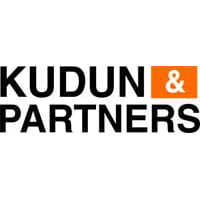
China 2019

Executive vice president – legal, compliance, joint venture affairs and corporate affairs; general counsel - Greater China Region | Nestlé (China)





Bianka Bian
Executive vice president – legal, compliance, joint venture affairs and corporate affairs; general counsel - Greater China Region | Nestlé (China)
The divestment of Nestlé’s dairy factory in Hulunbuir, Inner Mongolia in 2018 – the first divestiture by Nestlé in China. Nestlé Hulunbuir was Nestlé’s third dairy company in China, established in 2004. In October 2017, Nestlé China’s management received approval to deconsolidate this business under a tight deadline. The easiest option was to shut down the operation. However, considering that Nestlé Hulunbuir was the only dairy factory in the region, closure of the operation would deal a heavy blow to the local community: farmers would have to slaughter the cows and lose their main source of income; employees would lose jobs, and the local milk district would collapse, damaging the local economy. In line with Nestlé’s purpose and value and our strong social responsibility commitment, we decided to explore the opportunity of finding a buyer to continue running the business. Through an innovative deal structure, a local Chinese dairy company became the new owner who possessed the means and technology to transform this business into a successful high-value added business. The outcome demonstrated Nestlé’s deep rooted business principle which is to make our transactions benefit all stakeholders, being our company, our employees, local communities, our suppliers and customers.
My team provided support on the legal front and I led the entire transaction. We managed every step of the divestment process with strong support from our M&A, finance, technical, HR and corporate affairs colleagues. The completion of the deal demonstrated our legal team’s deep business insight, understanding of the local environment, strong legal proficiency and negotiation skills, creativity and capability in structuring and managing difficult transactions, as well as management and alignment of multiple internal and external stakeholders, including government, farmers, and employees. We won the first prize for this at an industry awards ceremony in 2018.
To proactively engage with business partners by understanding their business models, business practices, business strategies and their priorities. Meeting with business partners regularly, participating in business meetings, seeking feedback from business partners, and conducting joint team building exercises with business partners are all effective ways to build strong relationships. It is important that in-houselawyers have a business mind-set, understand market dynamics and how businesses create and measure values. It is equally important that in-house lawyers are able to provide solutions using a risk assessment approach when faced with ambiguities rather than simply saying “no”.
We have launched a WeChat based platform that is accessible through mobile phones in addition to the usual e-learning tools, webinars and more. Anywhere and anytime, our employees have access to our policies, SOPs, training materials, the latest legal news and updates, case sharing and more. We will soon deploy AI based chatbots to answer live questions. We are also rolling out a crawler technology to pre-screen our advertising, promotion and communication contents.
E-commerce law and data privacy related regulations are impacting our business.
Competitive bidding in terms of selection of external counsels. The competitive bidding process will enable in-house lawyers to compare different external counsels against a set of criteria beyond price only. A face-to-face session during the competitive bidding is important. This session can allow the in-house team to ask deep-probing questions, assess the dynamics of the external counsel’s team, and predict service level including speed of response.
In-house legal leaders must mobilise the team under the company’s purpose and value and walk the talk. She or he should create a climate of trust and openness in the team. In terms of decision making, the leader should make the process transparent and invite team members to participate in the decision making process. Empowerment of the team members is equally important for talent development. Mistakes made by team members should be seen by in-house legal leaders as opportunities for learning.
Strong learning agility, ability to manage complexities and align multiple stakeholders, excellent communication and advocacy skills, result focused and a team player. To succeed in an in-house environment, one should also have certain financial knowledge. Last but not the least, an in-house lawyer should go beyond just having good legal skills to be successful. FOCUS ON… In-house lawyers should embrace innovation and renovation in an open-minded way. Innovation and renovation should not only be associated with products or tools, but with processes, deal structures, different ways of doing things and more. Most importantly, innovation and renovation is about a mind-set and an attitude. Innovation and renovation will help us achieve improvements in efficiency and productivity. When this is done, team spirit and morale will go up as well. If “legal tech” can be used to review standard contracts and routine product labels, in-house lawyers will be freed from repetitive work and focus on value-adding services. Today’s management expect in-house teams to become “legal partners” to business teams. Becoming “legal partners” requires in-house lawyers to go beyond the traditional role of an in-house lawyer.